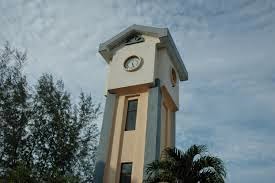I
Introduction
Injection Moulding Defects Analysis is packed with information about
problems encountered during the injection molding process. This tree (3) days
course will help the participants identify, isolate and eliminate the root
cause of molded part problems.
Target Group
Who will benefit by
attending?
This Injection Moulding
Defects Analysis Course is designed for people who;
·
Recently
appointed moulding operators, setters and supervisors, management and administrative
staff.
·
Quality
assurance and design personnel.
·
Sales and
marketing staff.
·
Becoming
entrepreneur.
·
Anyone who
interest to developed knowledge and skill in plastics technology field.
Prerequisites
Participants attending this
course must have some basic knowledge in polymer science. Some experience in
operating machines is useful but not required.
Objectives
Upon completion of the
course, the participants should be able to:
a)
Define commonly
used terminologies in injection moulding process.
b)
Use proper and
safe procedure when operating injection moulding machine.
c)
Evaluate effects
of processing on plastic product quality.
d)
Calculate
product cost.
e)
Determine common
moulding problems, their causes and remedies.
Course contents
1.
The
terminologies
-
Type
of defect
-
Defect
root cause
-
Machine
and process defects
-
Material
defects
-
Mould
defects
2.
Trouble
shooting
3.
Production control
-
Statistical
process control (SPC)
-
Dynamic
check ring and repeatability test
-
Dynamic
cavity imbalance test
-
Imbalance
cavity test
-
Load
sensitivity test
Training Method
Training will be delivered
through a combination between theoretical talk, demonstration and practical
lessons.
Course
Instructor
The instructor for this
course is Mr Badaruddin Bin Md Yunus who is a senior instructor at ILP Jitra.
Mr Badaruddin has 25 years experience in plastic technology. He graduated from
Universiti Teknologi Malaysia (UTM) in 1985 with a Diploma in Mechanical
Engineering. He also has a Diploma in Plastic Engineering Technology from
Northern Alberta Institute of Technology (NAIT), Canada.
Mr Badaruddin has taught many courses on plastic technology to both local and international participants. His expertise is recognized by the Department of Skill Development (DSD) where Mr Badaruddin frequently take parts in syllabus and material development sessions organized by DSD for plastic technology programs.
Schedule
Day 1
08:30 a.m. Registration
08:30 a.m. Registration
09.00 a.m The Terminologies
10:00 a.m. Break
10:30 a.m. Type of Defect & Root Cause
10:00 a.m. Break
10:30 a.m. Type of Defect & Root Cause
01:00
p.m. Lunch
02:30 p.m. Machine, Mould, Material & Process Defect
02:30 p.m. Machine, Mould, Material & Process Defect
05:00
p.m. End of day
1
Day 2
08:30 a.m. Troubleshooting
Day 2
08:30 a.m. Troubleshooting
10:00
a.m. Break
10:30 a.m. Troubleshooting
10:30 a.m. Troubleshooting
01:00
p.m. Lunch
02:30 p.m. Production control
02:30 p.m. Production control
05:00
p.m. End of
day 2
Day 3
08:30 a.m. Statistical process control (SPC)
08:30 a.m. Statistical process control (SPC)
10:00
a.m. Break
10:30 a.m. Dynamic check ring and repeatability test,
10:30 a.m. Dynamic check ring and repeatability test,
Dynamic cavity imbalance, Imbalance cavity &
Load sensitivity test
01:00
p.m. Lunch
02:30 p.m. Question & Answer
02:30 p.m. Question & Answer
05:00
p.m. Closing
ceremony
Contact Person
To obtain more information regarding this course,
please contact Corporate and Lifelong Learning Section. (04- 9161926 ext 161 or
162). You can also send enquiries by email to bklh@ilpjitra.gov.my
Fees
Companies sending their employees to this course may apply for reimbursement from HRDF under the SBL scheme.
Companies sending their employees to this course may apply for reimbursement from HRDF under the SBL scheme.









love this type posts keep this type of posts. lovely work keep this work up.
ReplyDeleteLed Tv repairing course
Led Tv repairing course
Led Tv repairing course
This comment has been removed by the author.
ReplyDelete